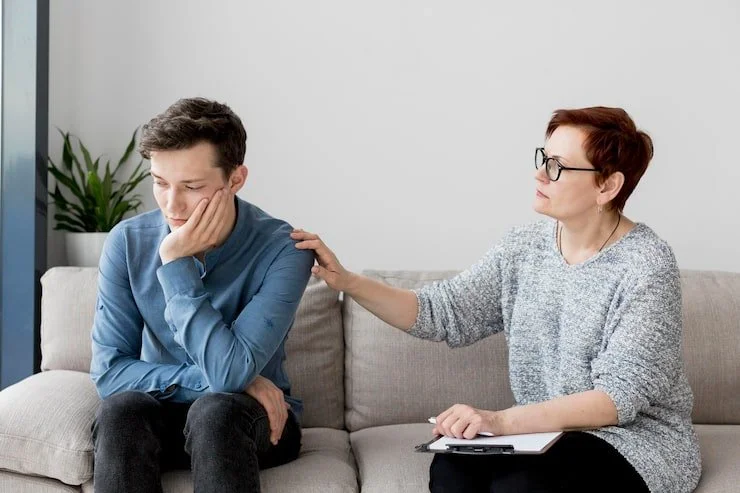How to Tell If You Have Anxiety or Depression: Understanding the Immigrant Experience
Many South Asians and immigrants living in the U.S. carry invisible emotional weight, the pressure to succeed, to make family proud, to fit into new cultures while holding on to their roots. In the midst of this balancing act, feelings of stress, sadness, or exhaustion can become constant companions. But how do you tell if what you’re experiencing is anxiety or depression?
The first step is to acknowledge your experiences without judgment. Many immigrants dismiss their emotional challenges as weakness or failure. Yet, recognizing and naming these feelings is a critical part of healing. Understanding the signs of anxiety and depression can help you take the next step toward support.
How to Tell If You Have Anxiety
Anxiety can show up in more ways than just worry. It often hides beneath overthinking, perfectionism, or restlessness. You might be experiencing anxiety if you notice:
Racing thoughts or difficulty relaxing, even during downtime. Your mind may feel like it never stops, jumping from one worry to another.
Constant fear of disappointing others or making mistakes. Even small decisions may feel overwhelming because of the weight of expectations.
Physical tension like tightness in the chest, shallow breathing, or restlessness. Anxiety often manifests physically before it is noticed mentally.
Overpreparing, people-pleasing, or needing control to feel safe. This can include double- or triple-checking work, overcommitting, or sacrificing personal needs to meet others’ expectations.
Trouble sleeping or focusing because your mind feels “always on.” Sleep disturbances are a common but overlooked sign of anxiety.
For many immigrants and South Asians, anxiety often comes from internalized expectations - thoughts like, “I need to do more to prove my worth,” “I can’t let my family down,” or “I should be grateful and not complain.” These culturally familiar pressures can make the body feel constantly alert and unable to rest, even when circumstances are objectively safe.
Pro Tip: Try journaling your anxious thoughts for a week. Noticing patterns can help you separate culturally conditioned fears from realistic concerns.
How to Tell If You Have Depression
Depression doesn’t always look like sadness. Sometimes it feels like emotional numbness, lack of motivation, or a sense of disconnection from life. You might be experiencing depression if you notice:
Losing interest in things that once felt meaningful, like hobbies, socializing, or cultural traditions you previously enjoyed.
Feeling tired even after sleeping enough, which can make everyday tasks feel monumental.
Struggling to find joy, even during positive moments, leaving you feeling disconnected from happiness.
Feeling isolated, misunderstood, or like you don’t belong anywhere, especially if your cultural identity or immigrant experience feels unacknowledged.
Thoughts like “Something’s wrong with me” or “I’ll never feel better.” These can be internalized messages from cultural pressures to remain strong or “grateful.”
For immigrants and South Asians, depression can be difficult to recognize because cultural teachings often emphasize stoicism, perseverance, and avoiding burdening others. This silence can deepen feelings of loneliness, self-criticism, and disconnection.
Pro Tip: Practicing self-compassion exercises or short mindfulness sessions daily can help identify early signs of depression and create space for emotional processing.
The Overlap Between Anxiety and Depression
It’s common to experience both anxiety and depression together. The same internal pressures that cause constant worry can eventually lead to burnout, hopelessness, or exhaustion. You might feel anxious one day and disconnected the next as if your mind and body can’t find balance.
Remember: Experiencing both does not mean you are failing. Many high-achieving immigrants struggle with this dual challenge. Awareness is the first step toward reclaiming your mental health.
Finding Support
If you’re wondering how to tell if you have anxiety or depression, start by noticing how long you’ve felt this way and how it’s impacting your daily life. Therapy can help you understand what’s happening beneath the surface not just through a clinical lens, but within the context of your cultural identity, values, and family story.
At Spiral Up Therapy, we work with South Asians and immigrants who want to better understand their emotional world, build coping skills, and move toward self-compassion. You don’t have to go through it alone, help is available, and healing begins with curiosity, not judgment.




